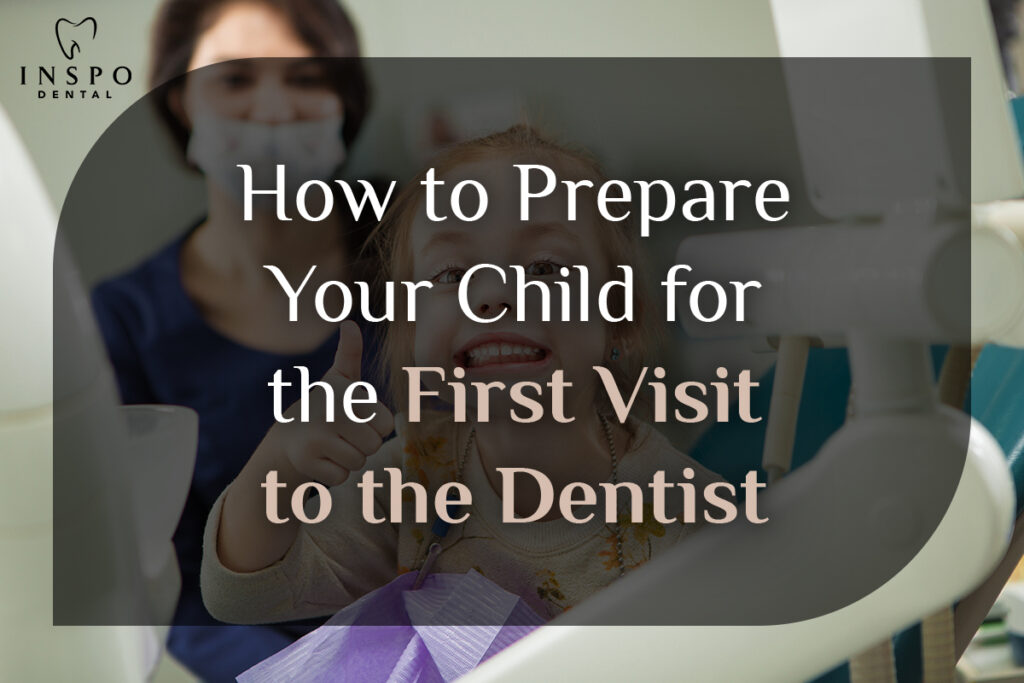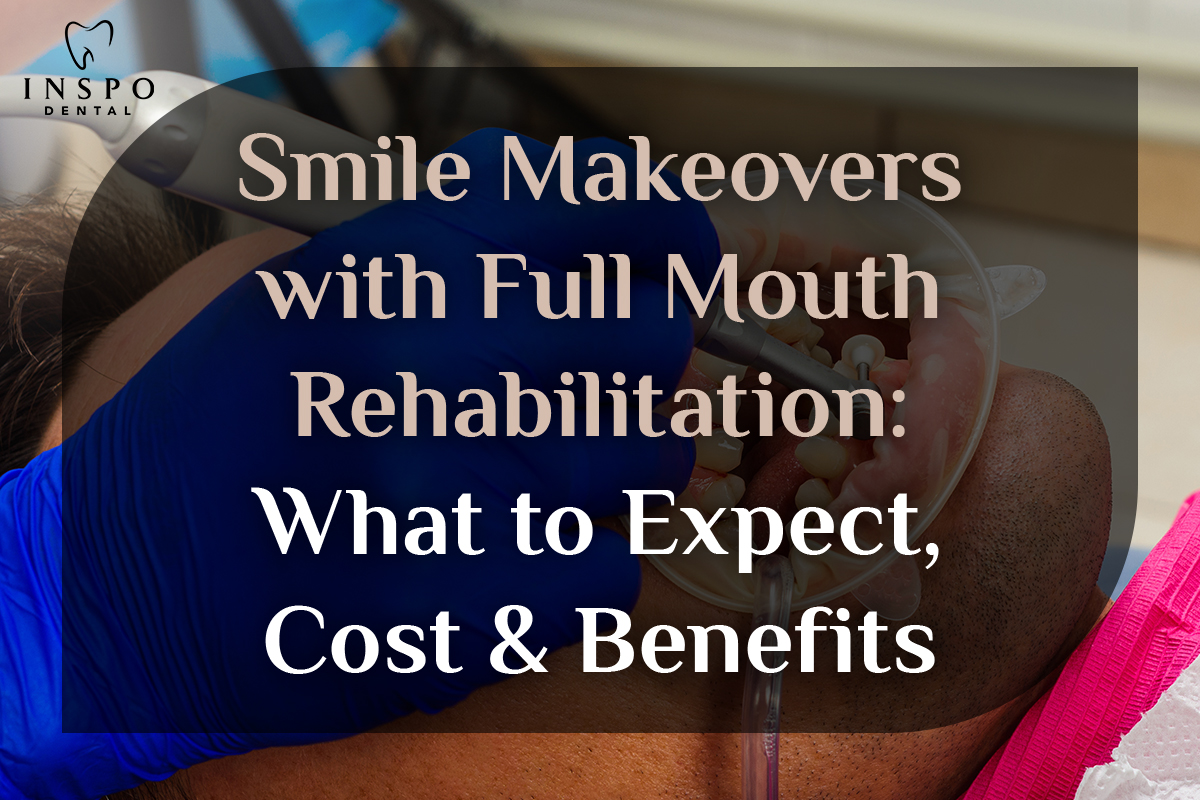Preparing your child for their first visit to the dentist can be a positive experience that sets the stage for a lifetime of good dental habits. Here are some practical steps you can take to ensure the visit is smooth and stress-free:
- Start Early
- Schedule Early Visits: The American Academy of Pediatric Dentistry recommends that children visit the dentist by their first birthday or within six months of their first tooth coming in. Starting early helps your child become familiar with the dentist’s office and reduces fear in future visits.
- Make Dental Care Part of the Routine: Before the first visit, ensure that brushing and oral hygiene are already part of your child’s daily routine. This helps normalize dental care as a regular part of life.
- Explain What to Expect
- Use Simple Language: Explain what will happen at the dentist’s office using age-appropriate language. For example, you can say, “The dentist will count your teeth and check to make sure they’re healthy.”
- Keep It Positive: Frame the visit as a fun and exciting experience. Avoid using words like “hurt” or “pain,” even in a reassuring context, as it might create unnecessary anxiety.
- Role-Playing at Home
- Pretend Dentist Visits: Practice a pretend dentist visit at home to familiarize your child with the experience. Use a toothbrush to “count” their teeth, and let them take turns being the dentist with a stuffed toy.
- Dental-Themed Books or Videos: Read books or watch videos about going to the dentist to make the experience more relatable and fun. Examples include “The Berenstain Bears Visit the Dentist” or “Dora Goes to the Dentist.”
- Choose the Right Dentist
- Pediatric Dentist: Consider choosing a pediatric dentist, who specializes in treating children and is trained to handle common fears and concerns. Pediatric dental offices are often designed to be child-friendly with toys, bright colors, and fun decorations.
- Office Visit Before Appointment: Some dentists allow you to visit the office before the actual appointment, so your child can get used to the environment. This helps reduce anxiety on the day of the visit.
- Plan the Visit at the Right Time
- Best Time of Day: Schedule the dentist appointment at a time when your child is well-rested and in a good mood, such as after a nap or in the morning.
- Avoid Meal Times: Make sure the visit doesn’t coincide with meal times to avoid any disruptions or fussiness during the appointment.
- Stay Calm and Positive
- Mind Your Own Anxiety: Children can pick up on your emotions. Stay calm and relaxed to reassure your child that going to the dentist is nothing to worry about.
- Praise and Encouragement: Offer lots of positive reinforcement. After the appointment, praise your child for being brave, and consider a small reward, such as a sticker or a trip to the park.
- Pack Comfort Items
- Bring a Favorite Toy or Blanket: Allow your child to bring a comfort item, such as a favorite toy or blanket, to help them feel secure during the visit.
- Snacks and Water: Have some healthy snacks and water on hand for after the appointment in case your child feels hungry or thirsty.
- Discuss Any Concerns with the Dentist
- Be Open About Fears: If your child has any particular fears or anxieties, discuss them with the dentist beforehand. Pediatric dentists are experienced in helping nervous children feel more at ease.
- Ask Questions: Don’t hesitate to ask the dentist about any concerns you may have regarding your child’s oral health or behavior during the visit.
- Set Realistic Expectations
- Keep the First Visit Short: The first visit is usually an introductory session, which may include a brief exam, cleaning, and fluoride treatment. Keeping it short helps ensure your child doesn’t become overwhelmed.
- Explain the Tools: If your child is curious, explain that the dentist will use special tools to check their teeth, but emphasize that these tools are safe and will not hurt.
- Follow-Up with Positive Reinforcement
- Post-Visit Discussion: After the visit, talk to your child about the experience. Reinforce how brave they were and discuss the importance of taking care of their teeth.
- Celebrate the Milestone: Consider celebrating the first dentist visit as a milestone with a small treat or family outing, reinforcing the idea that it was a positive and important event.
- Teach the Importance of Oral Hygiene Early
- Explain Why We Visit the Dentist: Help your child understand that visiting the dentist is important for keeping their teeth healthy and strong. Use phrases like “the dentist helps keep your smile beautiful” or “we go to the dentist to make sure your teeth are healthy.”
- Establish Good Oral Habits at Home: By emphasizing the importance of brushing twice a day and flossing early on, your child will come to see the dentist as part of their routine for keeping their teeth healthy, rather than something to be feared.
- Reinforce Dental Hygiene with Fun Tools
- Fun Toothbrushes and Toothpaste: Choose a toothbrush and toothpaste with characters your child likes or fun flavors they enjoy. This helps make brushing something they look forward to and builds a positive association with dental care.
- Reward Systems: Use a reward chart or stickers to incentivize regular brushing and flossing. Knowing there’s a reward system in place can motivate your child and make them more excited about their oral hygiene.
- Introduce the Dentist in a Relatable Way
- Meet the Dentist Ahead of Time: If possible, arrange a non-formal introduction between your child and the dentist before the appointment. This way, your child will recognize the dentist as a friendly face when it’s time for the real visit.
- Dentist as a Friend: Emphasize that the dentist is someone who cares about their health, just like a doctor or teacher. Framing the dentist as a helpful figure can reduce anxiety and make the visit more welcoming.
- Use Visual and Sensory Preparation
- Dentist Office Tours: If allowed, take your child on a brief tour of the dental office to see the chair, the tools, and the space. This makes the environment less intimidating when the actual appointment arrives.
- Watch Videos Together: There are many child-friendly videos that show cartoon characters visiting the dentist. Watching these together helps make the process relatable and demystifies what happens at the dentist.
- Ensure Good Sleep the Night Before
- Well-Rested Child: A well-rested child will be in a better mood and more cooperative. Be sure your child gets a good night’s sleep before the appointment to reduce irritability or resistance.
- Relaxing Bedtime Routine: Consider incorporating a relaxing bedtime routine that includes a short story about a fun dentist visit, further reinforcing positive feelings before the big day.
- Avoid Bribery or Threats
- No Bribes: Avoid offering bribes like sweets or toys in exchange for cooperation at the dentist, as this can send the message that visiting the dentist is something unpleasant. Instead, offer praise and a small, non-sugar-based reward afterward.
- Avoid Negative Language: Don’t say things like “if you don’t go, the dentist will have to pull your teeth” or “you won’t get a treat if you misbehave.” These statements can increase fear and stress around the visit.
- Be Patient and Let Them Express Feelings
- Allow Them to Express Concerns: Let your child talk about any worries or questions they have. Address their concerns with reassuring and simple answers. This will make them feel heard and understood.
- Be Patient: Some children may take longer to adjust to their first visit. Be patient, and don’t force them if they seem overly distressed. Work with the dentist to gradually introduce them to the experience.
- Familiarize Your Child with the Dental Office Environment
- Books and Games about the Dentist: Encourage your child to play games or read books about visiting the dentist, which can help them relate to the upcoming experience in a fun way. There are numerous dental-themed books, such as “Peppa Pig: Dentist Trip” or “Curious George Visits the Dentist,” which can help ease any anxiety.
- Let Them Bring a Friend: Allow your child to bring a stuffed animal or a favorite toy as a comforting companion during the visit. Some dentists even let children practice “examining” their toy’s teeth to create a lighthearted and engaging environment.
- Stay Close for Comfort
- Stay in the Room: If allowed, stay in the room with your child during the appointment, especially if they are younger. Your presence will give them a sense of security and make the experience feel less overwhelming.
- Gradually Reduce Involvement: As your child becomes more comfortable with dental visits, slowly transition away from being in the room so they can gain independence and confidence in visiting the dentist.
- Talk to the Dentist about Special Needs or Anxiety
- Discuss Specific Concerns: If your child has specific fears, anxiety, or special needs, make sure to discuss them with the dentist ahead of time. Many pediatric dentists are trained to handle different situations and will have strategies to make the experience more comfortable.
- Sedation or Relaxation Options: In extreme cases of anxiety, some dentists offer sedation or relaxation techniques for children. Discuss these options with the dentist if you believe your child might benefit from them.
- Set an Example
- Be a Role Model: Children often imitate their parents’ behavior, so demonstrate good dental habits yourself. Let them see you brushing your teeth regularly, flossing, and talking positively about your own dentist visits.
- Take Them to Your Dentist Appointment: If appropriate, take your child along when you go for your own dentist visit. Watching you go through the process calmly can help ease their fears and show them that there’s nothing to be afraid of.
- Create a Fun Post-Visit Ritual
- Plan a Fun Activity Afterwards: After the dentist visit, do something fun that your child enjoys, such as going to the park, getting a sticker, or visiting a favorite location. This can make the day feel special and encourage positive feelings toward future appointments.
- Positive Reinforcement: Keep praising your child for their bravery throughout the visit. The more you reinforce the idea that they did well, the more likely they’ll feel confident the next time they visit the dentist.
- Educate About Dental Health
- Teach About Healthy Teeth: Teach your child about the importance of healthy teeth and gums in simple terms. Explain how brushing, flossing, and visiting the dentist help keep their teeth strong and bright.
- Interactive Learning: Use interactive learning tools like fun apps or games that teach kids about oral hygiene. These can make dental care fun and engaging, helping them understand why dentist visits are important.
- Avoid Last-Minute Surprises
- Give Them Notice: Don’t surprise your child with a dentist visit at the last minute. Let them know a few days in advance so they can mentally prepare and ask questions if needed.
- Keep It Low-Key: However, avoid making it a huge deal either. Treat the dentist visit as a normal part of life, similar to going to the doctor or attending a routine appointment.
- Be Consistent with Dental Appointments
- Regular Visits: Make regular dentist visits part of your child’s routine. Consistent visits help your child become familiar with the dentist, reducing anxiety over time. Dentists recommend scheduling checkups every six months to maintain healthy teeth.
- Build Trust: By keeping regular appointments, your child builds trust with the dentist and the dental process, making each subsequent visit smoother and more predictable.
- Encourage Your Child to Ask Questions
- Empower Them to Speak Up: Encourage your child to ask the dentist or dental hygienist any questions they may have about their teeth, tools, or procedures. This can help them feel more in control of the experience and reduce anxiety.
- Create a Dialogue: Let your child know that it’s okay to talk to the dentist about anything they’re curious or worried about. Building communication between your child and the dentist fosters trust.
- Use Visual Aids to Explain the Process
- Show Pictures of the Dentist’s Tools: Before the visit, show your child pictures of the tools a dentist uses, like the mirror, scaler, and toothbrush. Explain what each tool does in simple terms so they’re not scared when they see them.
- Watch Educational Videos: Use child-friendly, animated videos that explain what happens during a dentist visit. Many online resources break down the steps of a visit in a way that’s easy for children to understand and relate to.
- Avoid Talking About Your Own Dental Fears
- Don’t Project Fear: If you have dental anxiety, be careful not to project your own fears onto your child. Focus on maintaining a positive attitude when discussing the dentist, and avoid sharing any negative personal experiences.
- Focus on the Positive: Instead of mentioning painful or uncomfortable aspects of dental visits, highlight the benefits, such as having strong, shiny teeth and fresh breath.
- Set Small, Manageable Goals
- Celebrate Small Wins: Break the visit into small, manageable goals, like sitting still in the chair, opening their mouth, or letting the dentist examine their teeth. Reward your child for each achievement to build confidence.
- Use Positive Language: Phrases like “Let’s see how well you can sit in the big chair” or “You’re doing such a great job letting the dentist count your teeth” provide positive reinforcement throughout the visit.
- Ensure a Friendly, Child-Centered Environment
- Choose a Child-Friendly Office: Make sure the dental office you choose has a welcoming, child-centered environment. Pediatric dental offices often have colorful décor, toys, and friendly staff that make the experience less intimidating.
- Engaging Waiting Area: A waiting area with games, books, and other fun activities can help your child relax before the appointment, making the visit more enjoyable.
- Use a Countdown Approach
- Countdown to the Visit: For younger children, use a countdown method to the dental visit, such as marking the days on a calendar. This approach helps them anticipate the visit without feeling rushed or surprised.
- Explain What Happens Next: During the visit, let your child know what will happen step by step (e.g., “First, you’ll sit in the chair, then the dentist will count your teeth”). This keeps them informed and reassured throughout the process.
- Create a Dental Storybook Together
- Personalized Story: Create a simple, personalized story about visiting the dentist that features your child as the main character. This can be a fun way to prepare them for the visit and give them a sense of ownership over the experience.
- Include the Dentist as a Hero: In the story, position the dentist as a hero who helps keep your child’s teeth healthy and strong, reinforcing the positive role the dentist plays in their life.
- Talk About Rewards Without Using Food
- Non-Food Rewards: When discussing post-visit rewards, avoid using sweets or treats. Instead, offer non-food rewards such as stickers, a small toy, or extra playtime to reinforce the positive behavior without promoting unhealthy habits.
- Special Outings: Consider planning a fun family outing after the visit, such as going to the park, visiting a zoo, or having a movie night. This gives your child something to look forward to beyond the appointment itself.
- Teach Healthy Eating as Part of Dental Care
- Relate Diet to Oral Health: Use the opportunity to teach your child about how certain foods, like fruits and vegetables, help keep their teeth strong. Conversely, explain how sugary snacks and drinks can cause cavities.
- Fun Activities Around Food Choices: Use fun, interactive ways to teach your child about good food choices, such as preparing tooth-friendly snacks together or playing games related to healthy eating.
- Reinforce the Importance of Fluoride
- Explain Fluoride Simply: When discussing fluoride treatments, explain that fluoride is a “super shield” for their teeth that helps prevent cavities. This simple analogy helps them understand the importance of treatments during their visit.
- Positive Attitude Toward Fluoride: If your child is offered a fluoride treatment at the dentist, speak positively about it, emphasizing how it helps protect their teeth.
- Teach the Difference Between Pediatric and Adult Dentists
- Kid-Friendly Environment: If your child notices that their experience is different from yours at the dentist, explain that pediatric dentists specialize in taking care of children’s teeth and have a fun, special way of doing things.
- Reassure About Future Visits: Let your child know that even though things may change as they grow older, the dentist will always help them keep their teeth healthy, regardless of age.
- Involve the Siblings
- Sibling Support: If you have older children who are already comfortable with dental visits, have them talk to their younger sibling about their experiences. This peer-to-peer reassurance can make a significant difference in how your child views the visit.
- Siblings as Role Models: Let older siblings demonstrate how to behave during the visit by going first. This can help calm younger children by showing them there’s nothing to fear.
- Consider Dental Health Apps for Kids
- Educational Apps: Use educational dental health apps for kids, such as Brusheez or Colgate’s “Brush Up” app. These interactive games can encourage your child to care for their teeth and become more comfortable with the idea of seeing a dentist.
- Timer Apps for Brushing: Use fun brushing timer apps to help your child stay engaged with their daily brushing routine. This reinforces the importance of oral hygiene between visits.
- Have Regular Conversations About Dental Health
- Ongoing Dialogue: Make dental health part of everyday conversations. Talking regularly about brushing, flossing, and dental visits keeps the topic top of mind and helps your child feel more prepared for their next appointment.
- Reinforce Good Habits: Praise your child regularly for good brushing and flossing habits. This constant reinforcement will help them understand the importance of oral hygiene and lessen anxiety about the dentist.
- Prepare for Special Dental Procedures
- Addressing Anxiety for Special Procedures: If your child needs a special procedure (e.g., fillings, extractions), explain what will happen in simple terms without overwhelming them with details. Focus on how the procedure will make their mouth feel better.
- Distraction Techniques: Bring a favorite book, toy, or tablet with calming apps to distract your child during the procedure if it’s allowed by the dentist.
Preparing your child for their first and subsequent visits to the dentist is all about fostering a positive, relaxed environment where they feel comfortable and secure. Through simple explanations, playful preparation, and reinforcing the importance of dental health, you can create a foundation for lifelong healthy habits. Regular visits to the dentist will become a natural part of their routine, helping them develop strong, healthy teeth and a fearless attitude toward oral care. By encouraging open communication, role-playing, and positive reinforcement, you ensure that dental visits are seen as helpful and even fun experiences that contribute to their overall well-being.






